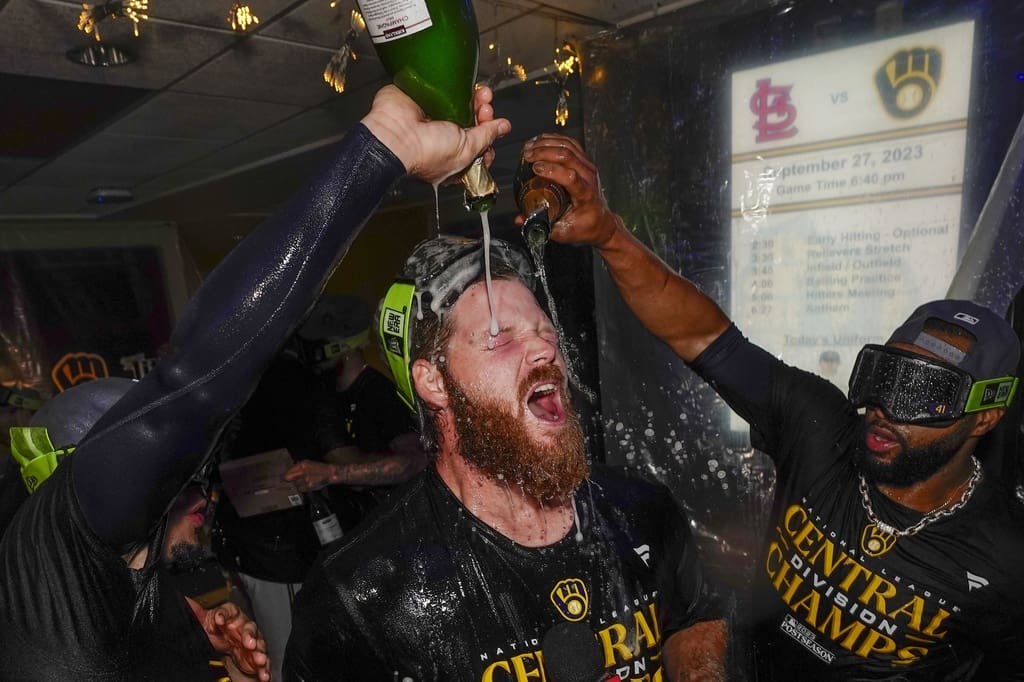Pirates
Perrotto: What Pirates Can Learn from Brewers, Rays

The Milwaukee Brewers, despite playing in the smallest market in the major leagues, have qualified for the postseason for the fifth time in six years.
The Tampa Bay Rays, despite again having one of the lowest payrolls in MLB, are on their way to the playoffs for a fifth consecutive year.
Meanwhile, the Pittsburgh Pirates will miss the postseason for the eighth consecutive year. They are also wrapping up a 31st season without a division title.
The Brewers and Rays face the same challenges as the Pirates with market size and financial limitations. Yet Milwaukee and Tampa Bay show they can win consistently despite the impediments.
So why are the Brewers and Rays winners?
“Good players,” Brewers manager Craig Counsell said.
“We’ve got really good players,” Rays manager Kevin Cash said.
That is certainly a simplistic answer but an accurate one. Except for a three-year stretch from 2013-15 in which they reached the National League wild card game each season, the Pirates’ talent level has usually been lacking since a run of three straight NL East titles from 1990-92.
Pirates general manager Ben Cherington has spent most of his 4.5 years on the job trying to accumulate as much young talent as possible. The results have been better this season as the Pirates have a 74-84 record with games remaining following seasons of 101 and 100 losses, but this will be the franchise’s sixth straight losing season.
However, the Brewers and Rays are winners because of more than just talent.
In Milwaukee’s case, owner Mark Attanasio has set the tone throughout the organization by declaring that the Brewers will never make excuses about their market size. That carries over to the front office, manager Craig Counsell and, ultimately, the clubhouse.
“We know we have a talented group of guys who can win a lot of games,” Brewers left fielder Christian Yelich said. “No matter what market you’re in, no matter what your payroll is, to win a division or just to get to the postseason is not easy. There are no guarantees because you never know how the season is going to go. You just have to live day by day and figure out how you’re going to accomplish your goal of winning that night. We’re good at that, I think.”
The Brewers have been winning many games since 2017, when they had an 86-76 record, before beginning their run of postseason appearances a year later.
Attanasio has been willing to spend on player payroll relative to the franchise’s market size. Yet Milwaukee still ranked just 21st among the 30 MLB teams at the start of this season with their $116-million payroll.
Yelich believes the Brewers’ success hinges on having a group of players who know how to win, as simple as that might sound.
“It rarely looks the same, but you do develop a formula for winning and know what you need to do to win or give yourself the best possible chance each night,” Yelich said. “I think we’ve done a really good job of that.”
Yelich says that the formula comes from Counsell, hired during the 2015 season.
“He puts guys in situations where they can be successful,” Yelich said. “Whether that happens or not, who knows, but he puts the right guy in the right spot to be successful. In a large enough sample size over a full season, it kind of ends up turning out in your favor. He’s built a culture here and sets the tone for it from the first day of spring training. There are certain expectations here. We expect to win.”
The expectation is the same with the Rays despite often playing in front of few fans at Tropicana Field, which is generally considered the worst ballpark in the big leagues.
“Big market, small market, it doesn’t matter when you’ve got good players because they are going to find ways to win,” Cash said. “Our guys do that. They come together and face whatever odds are against us. Every team has different stuff working against it. The big-market teams have other challenges that maybe we’re not aware of, but at the end of the day it ultimately comes down to players, and we have good ones.”
A case in point is reliever Robert Stephenson, who the Rays acquired from the Pirates in June in a trade for shortstop Alika Williams. Stephenson has become a key member of Tampa Bay’s bullpen with a 2.48 ERA in 40 games while striking out 56 in 36.1 innings and walking just eight.
Stephenson had a 5.14 ERA in 18 games for the Pirates this season. Yet he has lowered his ERA by more than 2.5 runs after the Rays suggested Stephenson throw more sliders.
It is how the Rays find players like Stephenson that leave most of the other 29 MLB teams envious. Time after time, Tampa Bay acquires players struggling in another organization who become contributors.
Sometimes, it appears that Cash and his staff, particularly pitching coach Kyle Snyder, possess magic dust that they secretly spread over their players. A case in point is that the Rays are going to the postseason despite losing three top-flight starting pitchers to season-ending elbow surgeries – left-handers Shane McClanahan and Jeffrey Springs and right-hander Drew Rasmussen.
“All of them were big blows for us,” Cash said. “Our front office does a really good job of acquiring as much quality depth as possible. It’s one thing to have depth but to have quality depth that you can be able to slot in and — I can’t say you’re not going to miss a beat because you’re going to miss a beat – but the depth we’ve had throughout the course of the season has allowed us to remain pretty successful.”
The Rays became successful not long after Stuart Sternberg took over as principal owner from Vince Naimoli following the 2005 season and hired the duo of Matt Silverman and Andrew Friedman to run the baseball operations and Joe Maddon as manager.
Three years later, the Rays made a run to the World Series, losing to the Philadelphia Phillies. That began a string of four postseason appearances in six years from 2008-13. Tampa Bay then took a step back before its current playoff streak.
“It’s unorthodox. It’s different than a lot of other places,” Rays closer Pete Fairbanks said of Tampa Bay’s consistent success. “I think people still live in the pre-luxury tax era where everyone assumed all the teams that spent all the money would beat all the rest. There’s more than one way to skin a cat, though, and the front office and the scouting department and everyone else in the organization have done a good job with that.
“We don’t just win by accident. The people who run this organization know what they’re doing.”















